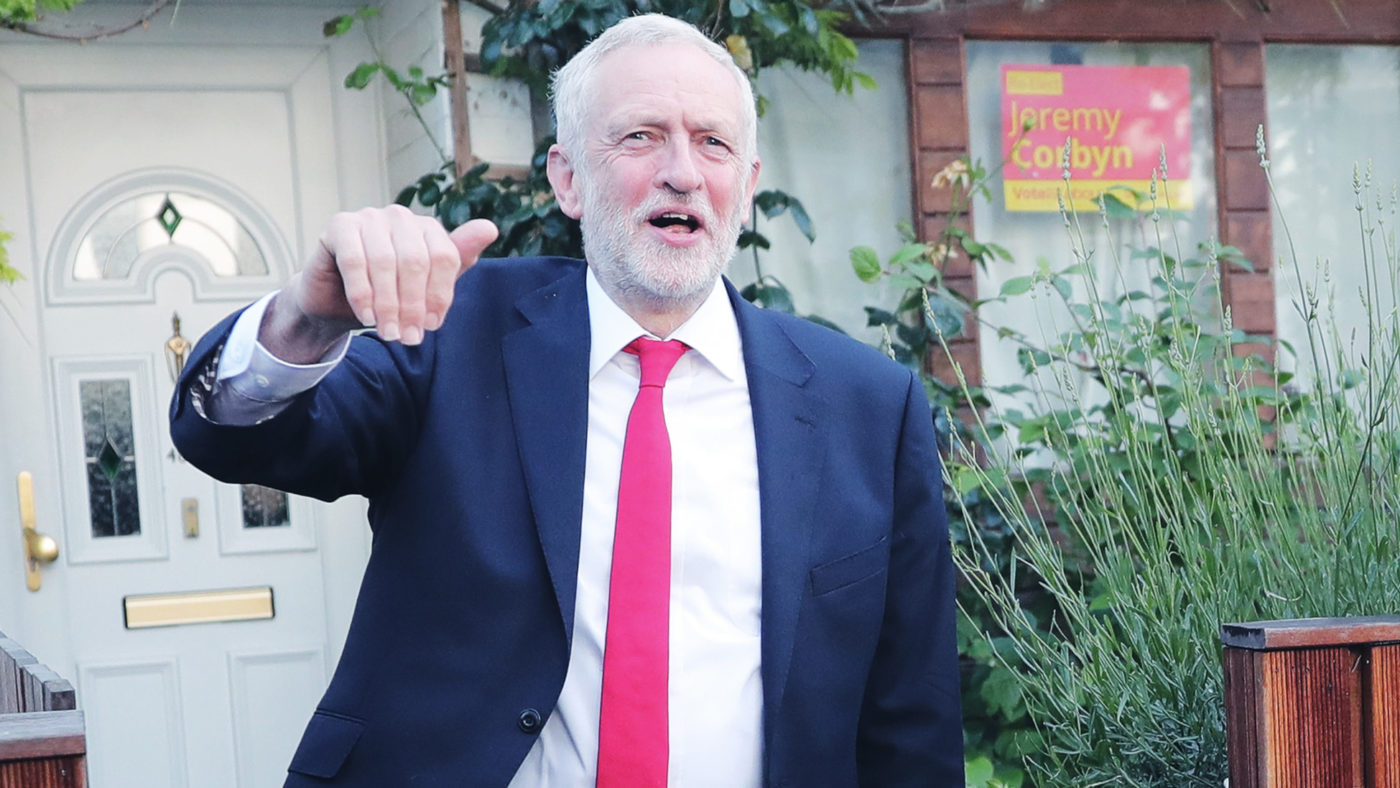Now that everyone has given their tuppence-worth on the incoherence of the policies outlined in Jeremy Corbyn’s speech on Brexit and the, or perhaps – we’re still not sure – a Customs Union, it’s worth noticing a much more extraordinary statement from the Q&A session that followed it.
It demonstrates that, no matter how clueless and unrealistic the Labour leader is when it comes to Europe, that’s nothing compared with his failure to come to grips with the real world. Corbyn said: “I do not agree with or accept the idea there has to be competition in mail delivery. After all, we all have one letterbox, and it is much more efficient to have one postal delivery person coming down the street rather than three or four from different or competing companies.”
This is staggering stuff, if you think about it for a second. Corbyn isn’t just saying that Labour plans to renationalise the Royal Mail. As Daniel Mahoney has pointed out for CapX, that is relatively small beer, amid the party’s other wildly expensive nationalisation ambitions.
It would only, judging by history and arithmetic, lead to less efficient management, poorer customer service, worse employee relations, less investment, an operating loss and a huge pension deficit, as well as the £4.5 billion or so it would cost to buy it back.
But Corbyn is also saying that he doesn’t want deliveries from anyone else. So wave goodbye to Amazon Prime and next-day delivery from Asos, and say so long to FedEx, DHL or UPS and their guarantees. As for innovations that have just arrived or are in the works, such as universal same-day delivery and the use of drones, forget it. Your one letterbox isn’t big enough for the drone to get through and, as is obvious, no one would want more than one.
Ignore, too, the fact that the UK parcels business was worth some £9 billion a year at the end of 2015, and has been growing (and is expected to keep growing for at least the next few years) by anything from 4 to 7 per cent annually. Four years ago, there were 11,765 UK companies in this sector, employing about 250,000 people – and that was before Amazon even really got into its own delivery business.
The extraordinary point is that Corbyn really seems to think that, if there’s one of something, it’s neither realistic nor desirable that there should be any alternative on offer. Heaven forbid that you might think that you could make a choice, or that anyone else might provide a better, a cheaper or – in any way at all – a different service.
The Labour leader genuinely seems incapable of understanding the first thing about a market. For him, it isn’t about what people might want, and about the tradespeople, small shopkeepers and entrepreneurs who identify gaps in the market, or devise cleverer or more efficient or cheaper ways of delivering them. It’s about capitalists in top hats and a suffering working-class out of Robert Tressell’s The Ragged-Trousered Philanthropists (published 1914).
The “only one letterbox” appears such a ludicrous notion that today’s 18-year-old Corbyn enthusiast may not realise its implications. You’ve got black cabs, why do you need Uber or Lyft? There’s one telephone in your house (wired up to one spot which you had no say in selecting, and run by the Post Office). No need for another, let alone one with Candy Crush on it. There’s one gas company, one electricity provider, one water supplier, one steel company, one ports authority, one aerospace manufacturer. There’s one car – unfortunately it’s made by British Leyland, but think yourself lucky you’re not in East Germany, or it would be a Trabant. As CapX’s editor Oliver Wiseman tweeted: “We all have one mouth. It makes sense to have one sandwich shop to make the food we need to fill it.”
All right, you may think that one is too much. But the others are equally silly, aren’t they? Not to Corbyn. In fact, he expressly went on to say: “Likewise, the idea that you have competition in water supplies is a little odd when there is only one water pipe comes to each house.”
When Corbyn was 18 and had already adopted the political views which, even then, were absurdly outdated and had demonstrably failed in every single place and occasion where they’d been tried, all the examples above were in government ownership, and most of them were monopolies. In those days, the government even owned the package holiday firm Thomas Cook (privatised 1972) and the removal company Pickford’s (privatised 1982), for heaven’s sake. Though we did have three – three, count ’em! – television channels.
Corbyn’s “one-size fits all” approach ought to seem ridiculous, even if no one would laugh if they had to live in a country that operated that way. But he’s not joking; he really seems to think that all the reforms, the improvements in living standards, the economic growth and consumer choice of the last 40 years were a mistake, and that the state-run companies of Britain (then known as ‘the sick man of Europe”) were better. He doesn’t seem to realise that it is exactly the market – the existence of choice and competition – which led to those improvements, which drove innovation, drove up living standards, and drove down prices. It’s as simple as the fact that a range of shops offer a wider range of goods, services and prices, while Corbyn’s logic is to wonder: “who would want more than one shop?”
What we certainly only have one of is the future, and most of us who remember the 1970s rather differently from Corbyn’s rose-tinted socialist vision would prefer to stick with choice.


